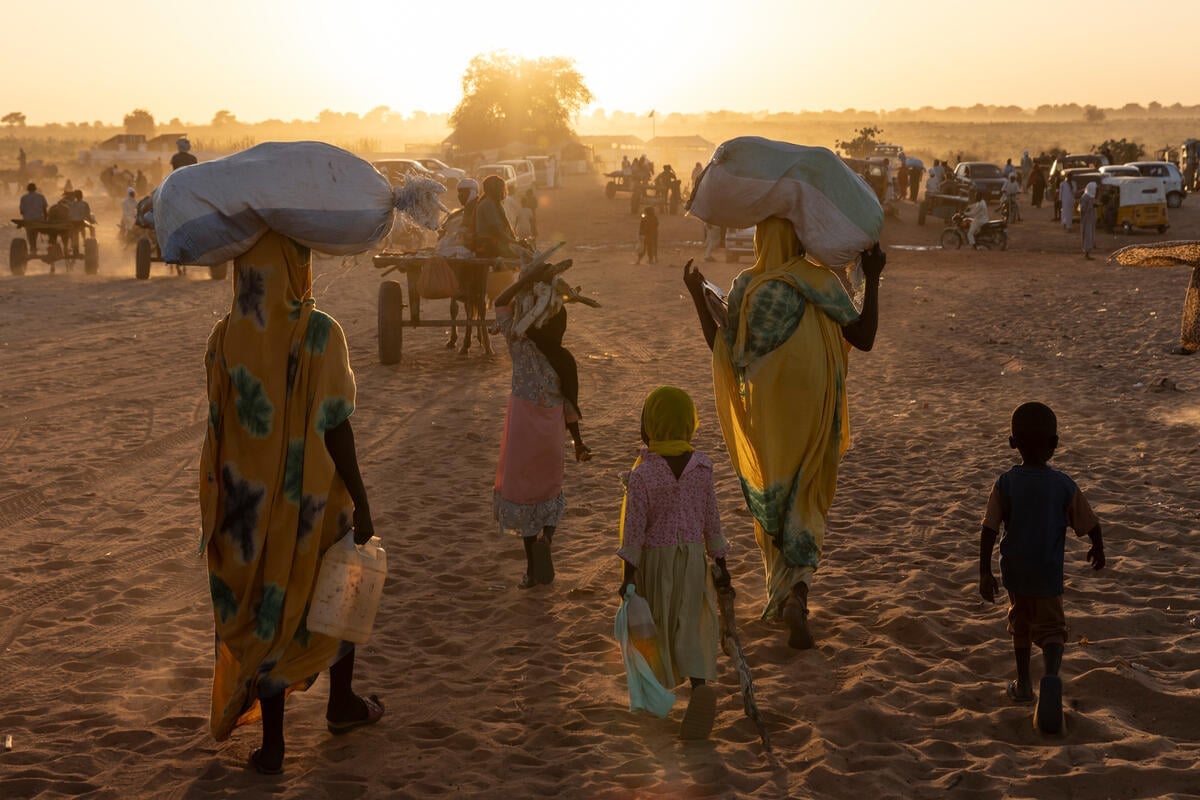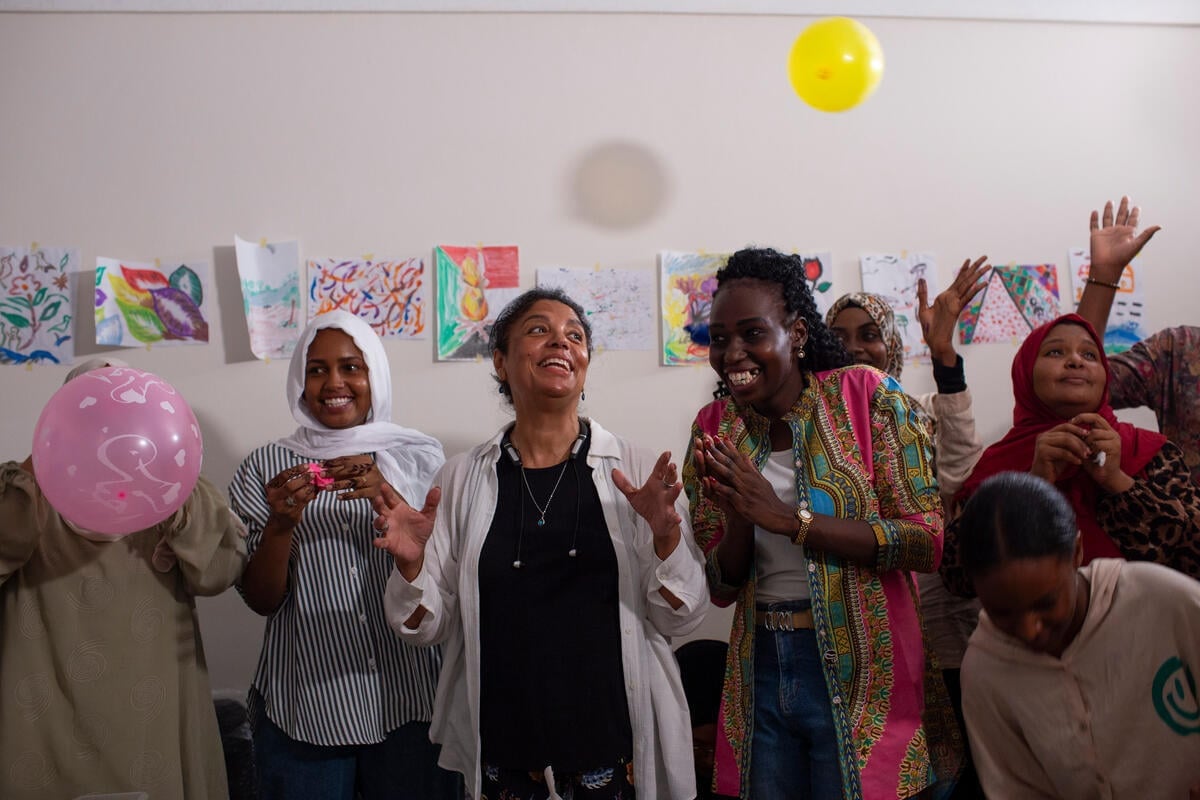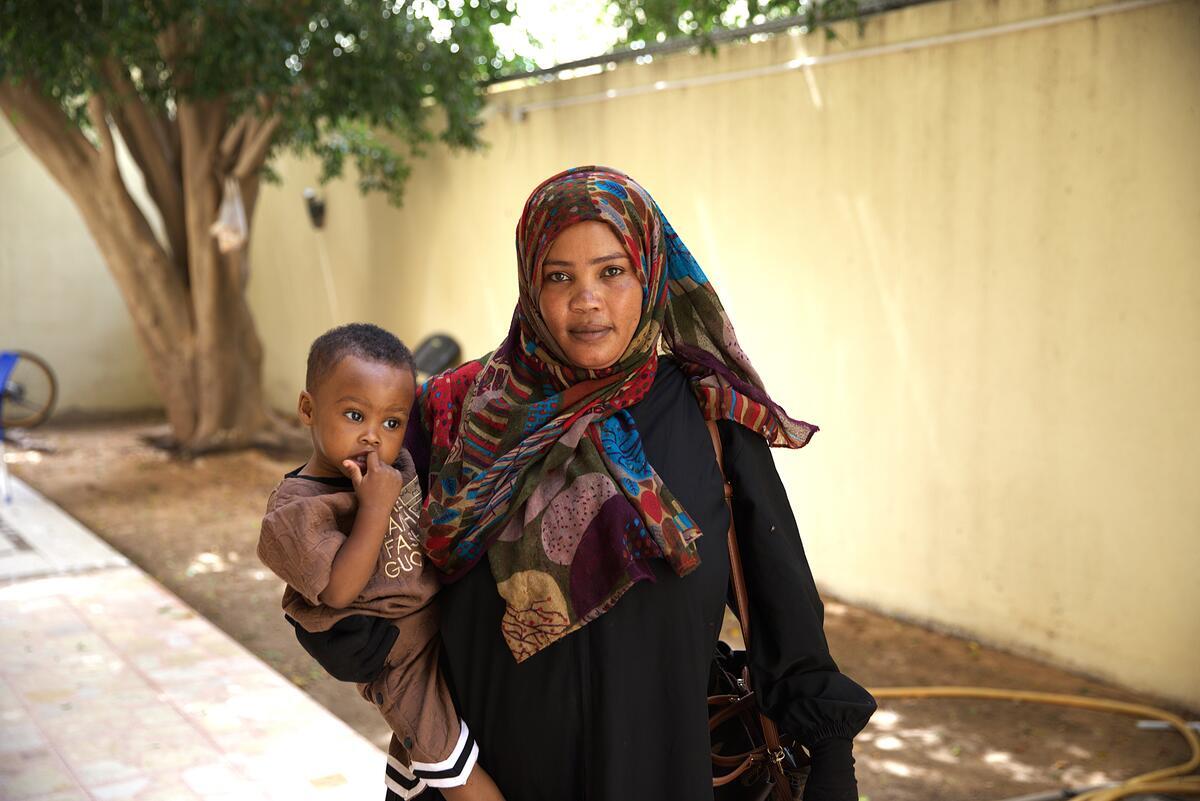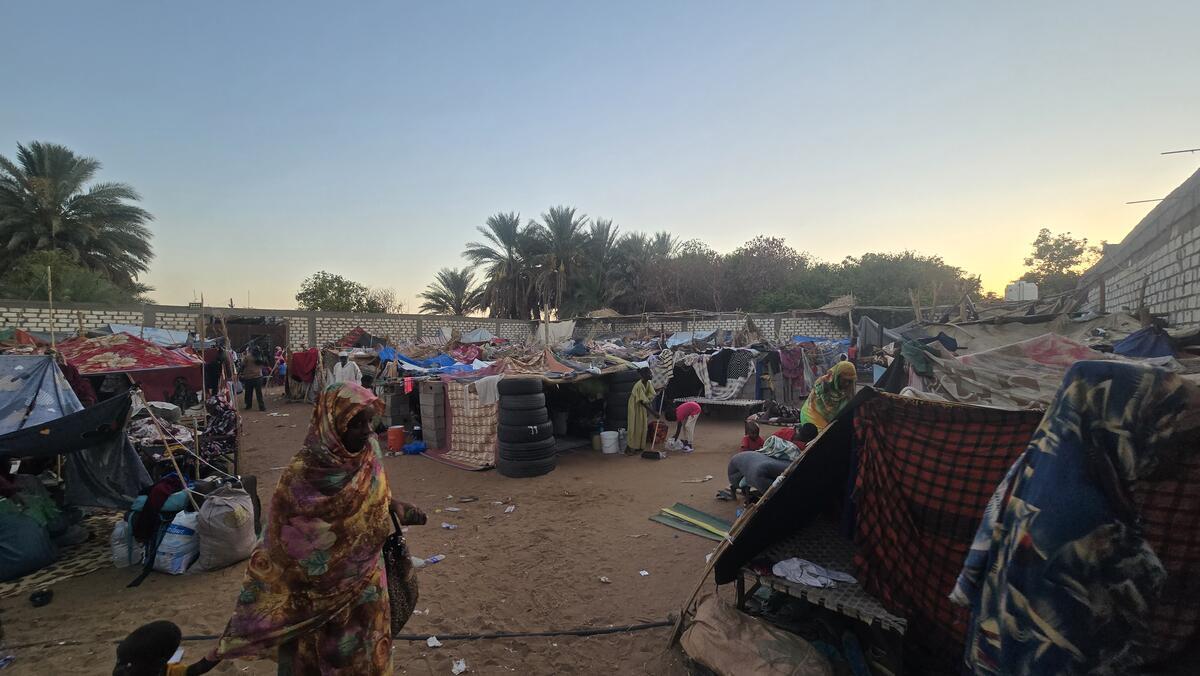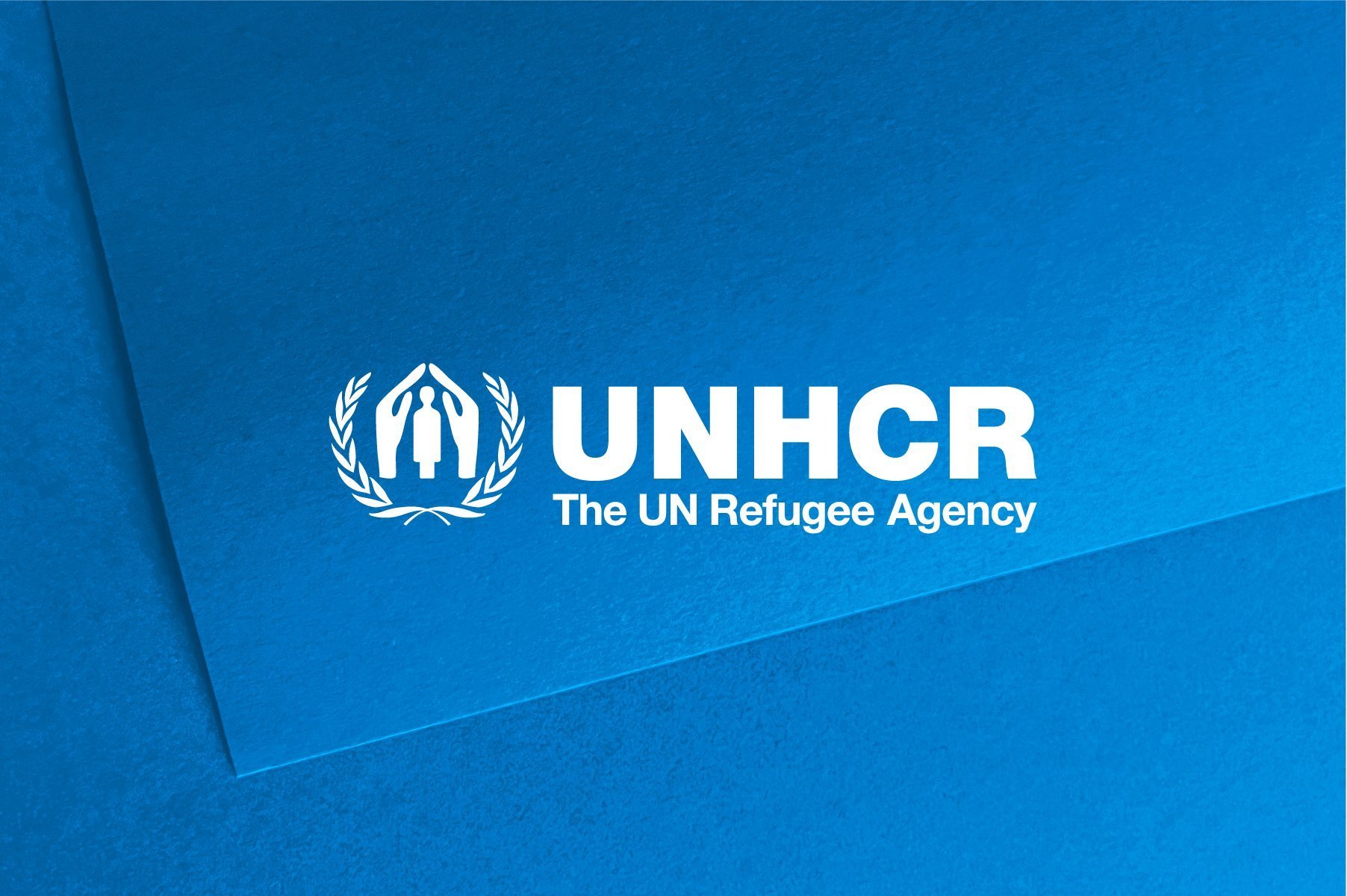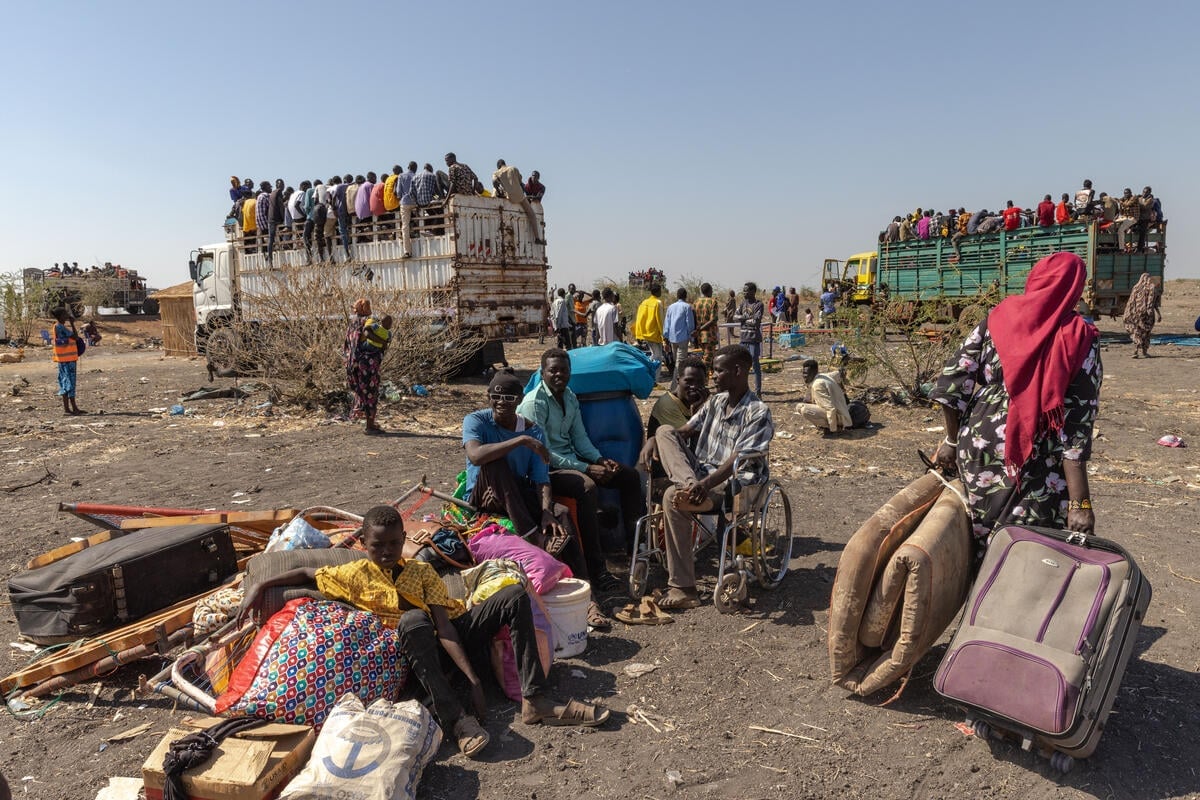UNHCR appeals again for safe passage, safe haven for civilians fleeing violence inside Libya
UNHCR appeals again for safe passage, safe haven for civilians fleeing violence inside Libya
With intensified fighting in Libya, UNHCR is becoming worried that people needing to flee combat areas and seek refuge are either unable to go or being prevented from doing so. Typically, we would expect to see significant numbers of injured people and women and children in a mass displacement of this nature, but so far our staff at the borders with Egypt and Tunisia have seen very few. We appeal again to all parties to ensure safe passage for all civilians fleeing violence.
UNHCR continues to believe that the situation for sub-Saharan nationals in all parts of Libya is particularly critical. Our hotlines continue to receive calls for help from refugees and asylum-seekers trapped in Libya. We are hearing of Eritrean refugees being detained in both eastern and western parts of the country.
In Egypt yesterday, of the 2,250 people who arrived at the border over 1,000 were Libyans. Among them were whole families, including from the eastern town of Ajdabiyya. Most left the border after having their papers processed. Many said they feared that routes out of Libya will be blocked as the combat zone closes in.
Currently, some 3,500 people are stranded at the Egyptian border. The majority are Bangladeshis, however the number of flights from Egypt to Bangladesh has now increased and yesterday 879 Bangladeshis departed. Conditions at the border continue to be harsh with very cold temperatures at night and inadequate shelter. UNHCR and partners have been distributing blankets, sleeping mats, food and water.
A group of 35 Somalis, 5 Eritreans and 3 Ethiopians who were trapped in Benghazi were evacuated by boat to Alexandria and then transferred to Saloum on 10 March. Another group of 80 Eritreans who had been trapped in Benghazi also crossed the border last night. There are now 141 persons of concern to UNHCR at the border including Somalis, Eritreans, Ethiopians, Darfurians, Ivorians and Palestinians. UNHCR is undertaking refugee status determination for the group and has asked the Government of Egypt to allow refugees and asylum seekers to enter the country and be accommodated away from the border area until a solution can be found for them.
In Tunisia over 16,000 people at the border camp are awaiting onwards transportation or other solutions. On average some 3,000 people have arrived per day since Friday. Many of the new arrivals have told UNHCR staff that they spent many days at Tripoli airport before coming to Tunisia.
As of today there have been 25 UNHCR flights from Tunisia and Egypt since the start of the joint IOM-UNHCR humanitarian evacuation operation on March 1. More than 6,000 people have already been flown home to Egypt, Bangladesh, and Mali in UNHCR-contracted planes. A further 15 flights are contracted for today carrying some 3,000 sub-Saharan Africans to Mali, Ghana, Chad and Niger. In addition, High Commissioner Guterres yesterday released an additional US$5 million from UNHCR's operational reserve to cover the costs of a further 75 UNHCR flights carrying some 15,000 third country nationals to sub-Saharan African destinations, and extending UNHCR's contribution to the joint IOM-UNHCR humanitarian evacuation operation until next week.
To date 280,614 people have fled the violence in Libya. This includes over 151,324 to Tunisia (including 18,892 Tunisian, 12,256 Libyans, 120,176 others), 117,991 to Egypt (including 69,960 Egyptians and 48,031 others), 2,205 to Niger (including 1,865 from Niger and 340 others) and 9,094 to Algeria (including land, air and sea evacuations).


